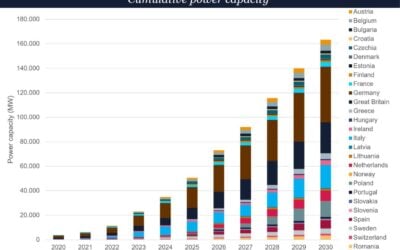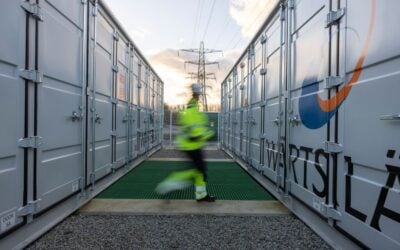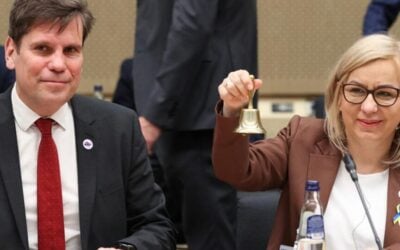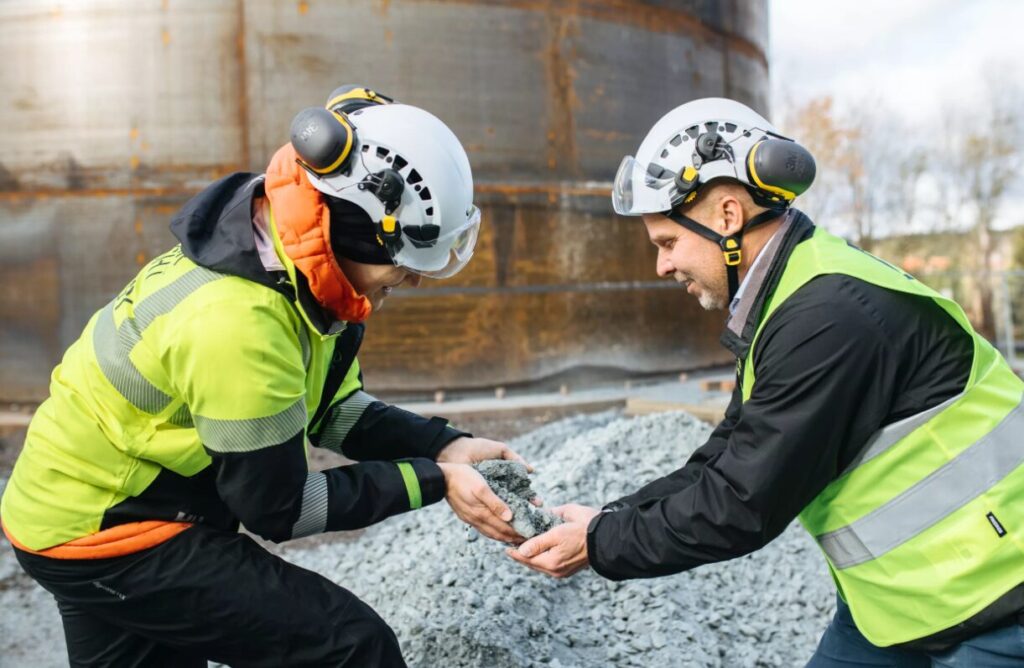
A roundup of energy storage news from across the EU, involving Polar Night Energy’s ‘Sand Battery’ in Finland, GazelEnergie and Q Energy in France, and Spain’s MITECO awarding financial support to 45 projects.
Polar Night Energy testing electricity storage using its Sand Battery tech
Technology firm Polar Night Energy will invest €4.2 million (US$4.4 million), half covered by a grant from government agency Business Finland, to test power-to-heat-to-power applications for its ‘Sand Battery’ technology.
Enjoy 12 months of exclusive analysis
- Regular insight and analysis of the industry’s biggest developments
- In-depth interviews with the industry’s leading figures
- Annual digital subscription to the PV Tech Power journal
- Discounts on Solar Media’s portfolio of events, in-person and virtual
Or continue reading this article for free
The two-and-a-half year R&D project will involve the design, testing and validation of using electricity to heat its technology to store thermal energy, to then convert that thermal energy back into electricity, so-called power-to-heat-to-power (P2H2P). It will involve building a small-scale pilot plant.
Its two previous, high-profile projects covered by Energy-Storage.news – in Vatajankoski and Pornainen – have been designed for power-to-heat applications, using the stored thermal energy it generates by heating up sand-like substances in a large container for industrial applications.
In a statement given to Energy-Storage.news, Polar Night Energy CTO Markku Ylönen’s said: “The thermal energy storage unit will undergo significant redesign to optimise it for electricity production applications. By redesigning the heat transfer piping system inside the thermal energy storage and upgrading some materials to more heat-resistant options, we can achieve sufficiently high temperatures, as the storage medium itself can withstand much higher heat levels.”
“We are aiming for a round-trip efficiency (RTE) in the range between 30 and 50% for electricity production. The higher end is possible through more complex processes and their implementation depends on the economic feasibility. Using a combined heat and power approach, the total roundtrip efficiency may reach 90%.”
The firm said the technology could enable storage at much lower costs than lithium-ion batteries, and store it for longer periods, with a more environmentally friendly design, longer lifetime and no degradation.
GazelEnergie and Q Energy commission 35MW BESS in France
Developer/IPPs GazelEnergie and Q Energy have together commissioned a 35MW/44MWh battery energy storage system (BESS) in Saint-Avold, Moselle, France.
The BESS is co-located with the Emile Huchet thermal power plant, part of the portfolio of GazelEnergie, which is part of the Czech energy group EPH.
The firm’s didn’t reveal the provider, only saying the project comprises 24 units. A picture of it mid-construction was released along with the announcement, shown below.
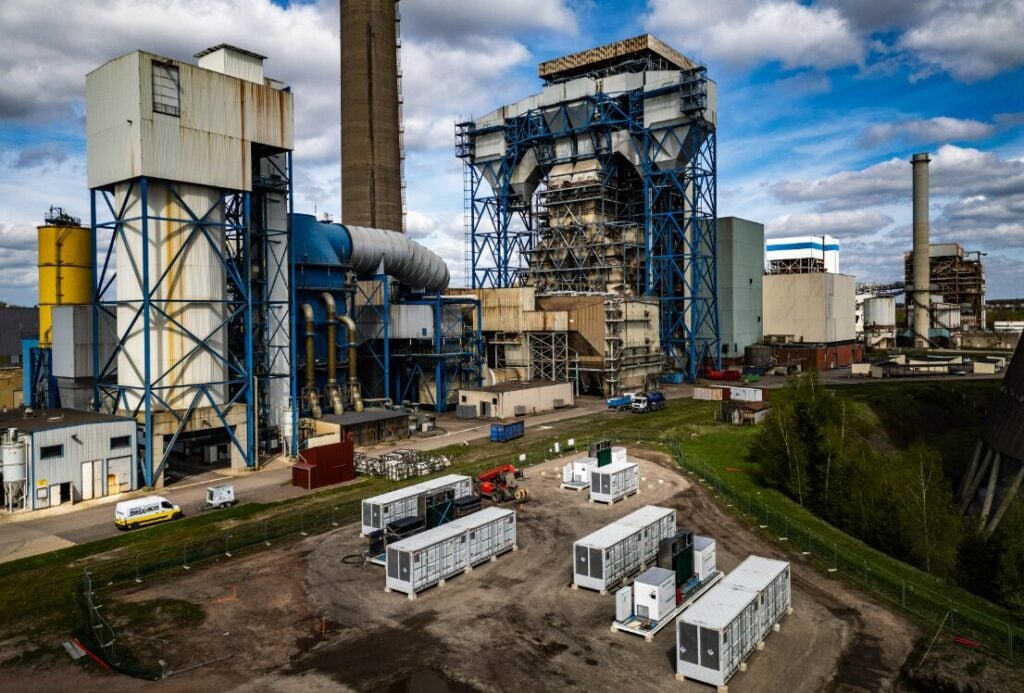
The two companies said the project will facilitate the integration of renewable energy, stabilise the grid and help to reduce the volatility of energy prices in the French electricity market.
Large-scale activity in the French energy storage market has started to pick up in the past year, with two 100MW/200MWh projects developed by UK-based Harmony Energy (one sold to Alpiq, one it is building itself) and a 240MW/480MWh being built by TagEnergy with Tesla Megapacks, the country’s largest.
Spain’s MITECO awards over €150 million in funding to 779MW/3,400MWh of energy storage projects
The Ministry for Ecological Transition and the Demographic Challenge (MITECO) in Spain has allocated funding totalling €156.4 million to 45 projects for both electricity and thermal energy storage.
The funding comes from Spain’s portion of of the EU-wide Recovery and Resilience funding, a programme originally set up to offset the negative effects of the Covid-19 pandemic but which has since gone on to fund energy storage in numerous countries, particularly in Central and Eastern Europe (CEE).
35 of the projects are standalone electrochemical energy storage projects, most likely BESS, totalling 690.2M of power and 2,820MWh of energy storage. The other 10 are thermal energy storage projects, totalling 88.35MW of power and 591.27MWh of thermal energy storage capacity.
One of them uses molten salt as its storage medium, and is a 2.9MW, 8.1-hour system.
The funding is part of Spain’s PERTE programme (Strategic Projects for Economic Recovery and Transformation) and you can see the full resolution outlining the awards here (in Spanish). It follows the award of funding for projects totalling 1.9GWh a year ago, also part of the PERTE programme.

